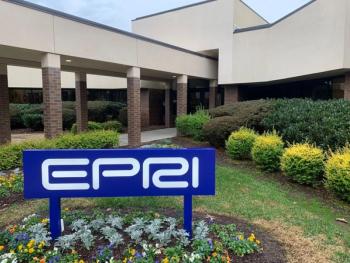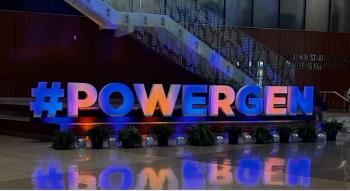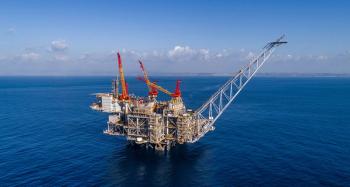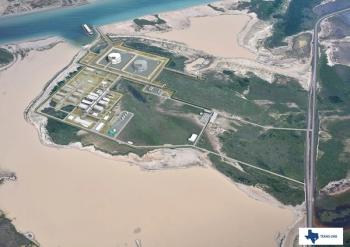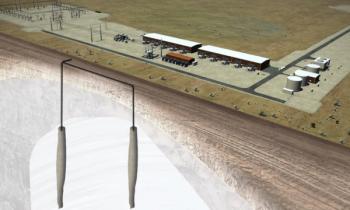
New planetary gear targets pipeline compressor applications
Voith Turbo recently unveiled VoreconNX, the next generation of its variable speed planetary gear, in Houston, Texas. The new gear is said to stand for speed control with maximum reliability and low life cycle costs (LCC) in the oil and gas. With the new NX series, Voith has now further developed the principle for applications in the low power range up to 10 MW and is extending this portfolio in the area of pipeline compressors. In this range, the VoreconNX is said to provide an increase in efficiency of up to eight percent and lower total costs of ownership (TCO).
The Vorecon is used throughout the chain of the oil and gas industry, controlling the speed in upstream, mid-stream and downstream applications. In the new series, an optimized torque provides efficient speed control. In accordance with the superimposition principle, this uses a small part of the input power.
(The new VoreconNX gear)
Depending on the speed required, this power is fed back to the driveline by way of the planetary gear on the driven side. Adjustable pump blades in the torque converter provide the control – stepless and wear-free.
In the VoreconNX, a helical gear on the output side adapts the output speed to the compressor. This allows modular design with a standardized speed control system. As a result, Voith can provide components faster and reduces the future delivery time of the new Vorecon to six months.
The new type also has an integrated control and lubrication oil system. This system fills the torque converter and supplies its own gearbox, the drive motor and the driven machine with lubrication oil in parallel.
The Vorecon controls the speed of compressors and pumps. The lifetime of the hydrodynamically controlled planetary gear is said to be several decades. With its statistical reliability of 99.98% and an MTBF of 48 years, it avoids unscheduled downtime of the drive system and the associated costs.
Voith Turbo, a Group Division of Voith GmbH, provides drive solutions across industries such as oil and gas, energy, mining and mechanical engineering, ship technology, rail and commercial vehicles.
Newsletter
Power your knowledge with the latest in turbine technology, engineering advances, and energy solutions—subscribe to Turbomachinery International today.

